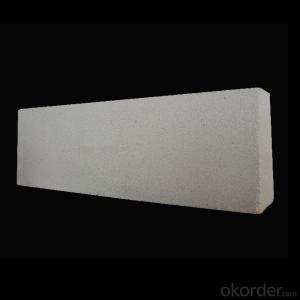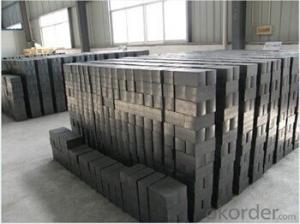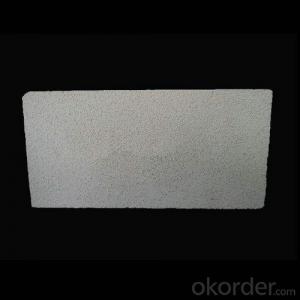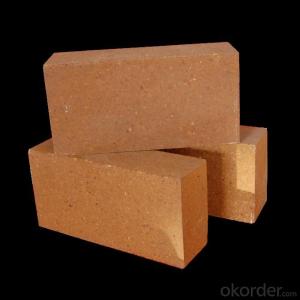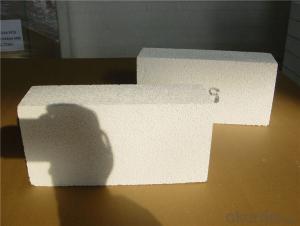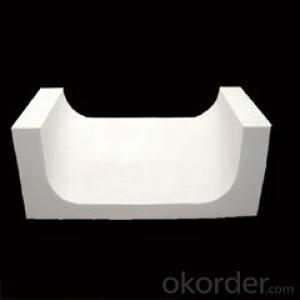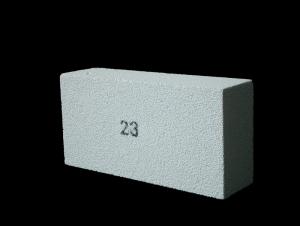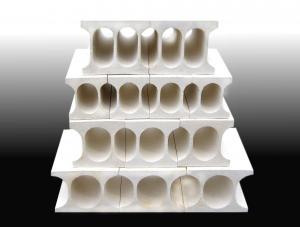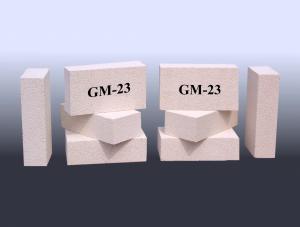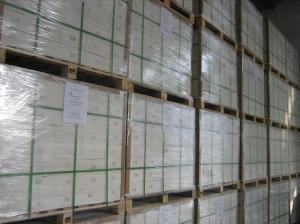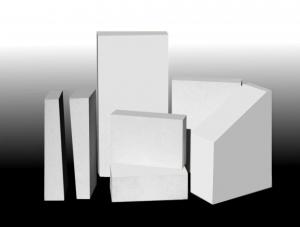Insulating Fire Brick with Light Weight for Steel Pipe
- Loading Port:
- Tianjin
- Payment Terms:
- TT OR LC
- Min Order Qty:
- 1 m.t.
- Supply Capability:
- 10000 m.t./month
OKorder Service Pledge
OKorder Financial Service
You Might Also Like
Description:
Insulating Fire Brick with Light Weight are high performance insulation products manufactured with unique shot removing and vacuum forming process, provide excellent high temperature stability, extra low thermal conductivity and compressive strength.
Advantages of Insulating Fire Brick:
Low thermal conductivity.
High strength and resistance to corrosion.
Low heat capacity.
Low shrinkage after heavy firing.
High insulation
High refractoriness.
Low density.
Applications:
Insulating Fire Brick is highly applied in below:
Steel furnaces
Iron making furnaces
Glass kiln
Ceramic tunnel kiln
Cement kiln
FAQ:
Payment term:T/T 30 deposit after order confirmed,the balance after goods ready before shipping,or L/C, or Western Uninon for small amount.
Lead time:Normally in 5-10 days after deposit received
Sample apolicy:Sample are always available for each modle
Shipping port: Tianjing
Technical Data Sheet:
Item | Insulating Fire Brick with Light Weight | |||
0.6 | 0.8 | 1.0 | 1.3 | |
Al2O3 (%) | 40 | 40 | 40 | 40 |
Fe2O3 (%) | 1.5 | 1.5 | 1.2 | 2 |
SiO2 | 55 | 55 | 55 | 55 |
Bulk Density (g/cm3) | 0.6 | 0.8 | 1.0 | 1.2 |
Apparent Porosity % | 70 | 60 | 55 | 50 |
Cold Crushing Strength (Mpa) ≥ | 2.0 | 2.5 | 3.0 | 4.0 |
Reheating Linear Change (%)°C X 12H ≤ | 1300℃ -0.5 | 1350℃ -0.5 | 1350℃ -0.9 | 1350℃ -0.9 |
Thermal Conductivity((W/m.k)(1000°C) | 0.33 | 0.60 | 0.45 | 0.80 |
Max Service Temperature (°C) | 1200 | 1280 | 100 | 1350 |
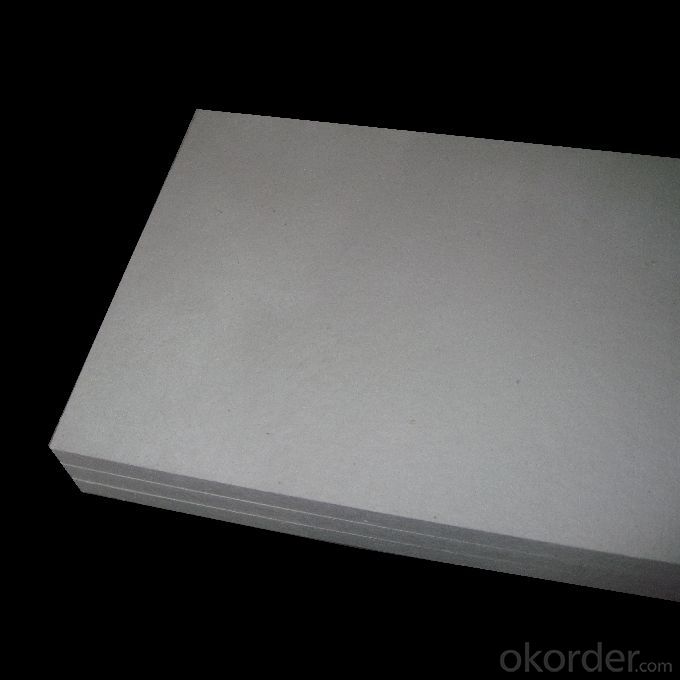
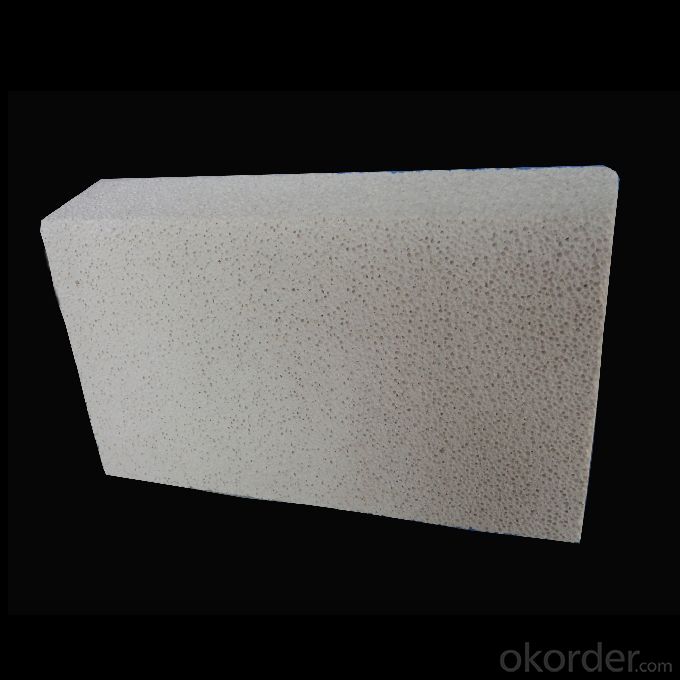
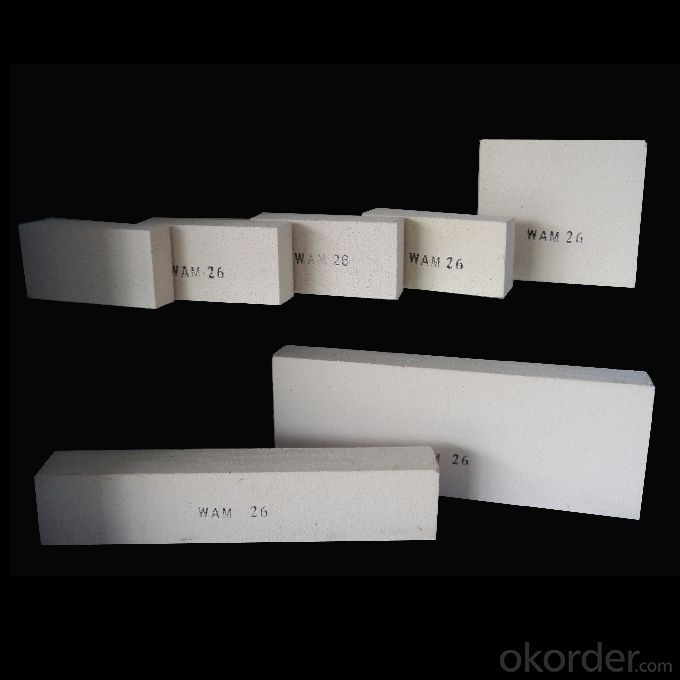
- Q:Do insulating fire bricks have a high thermal stability?
- Yes, insulating fire bricks have a high thermal stability. They are designed to withstand high temperatures without significant deterioration or structural damage, making them an excellent choice for applications requiring insulation and heat resistance.
- Q:Are insulating fire bricks safe to use?
- Yes, insulating fire bricks are safe to use. They are specifically designed to withstand high temperatures and are made from non-toxic materials that do not emit harmful gases or substances when heated. They provide excellent insulation and are commonly used in various applications such as kilns, furnaces, and fireplaces.
- Q:Are insulating fire bricks suitable for insulation in petrochemical plants?
- Yes, insulating fire bricks are suitable for insulation in petrochemical plants. These bricks are made from lightweight refractory materials and have excellent thermal insulation properties. They can withstand high temperatures and provide insulation against heat transfer, making them ideal for use in petrochemical plants where insulation is crucial for safety and energy efficiency.
- Q:Can insulating fire bricks be used in the construction of regenerators?
- Yes, insulating fire bricks can be used in the construction of regenerators. These bricks are designed to have low thermal conductivity, which makes them suitable for applications that require heat insulation. Regenerators, which are used in various industries like glass manufacturing and metal refining, require materials that can withstand high temperatures and efficiently store and release heat. Insulating fire bricks can fulfill these requirements, making them a suitable choice for regenerator construction.
- Q:Are insulating fire bricks resistant to saltwater?
- Insulating fire bricks are typically not resistant to saltwater. Saltwater contains high levels of salt, which can cause corrosion and degradation of the material over time. It is recommended to use refractory materials that are specifically designed to withstand saltwater environments if you are looking for a solution that is resistant to corrosion.
- Q:Can insulating fire bricks be used in high-temperature kilns for pottery?
- Yes, insulating fire bricks can be used in high-temperature kilns for pottery. These bricks are specifically designed to withstand and retain heat, making them suitable for use in kilns that reach high temperatures. They help to insulate the kiln, preventing heat loss and allowing for more efficient firing of pottery.
- Q:Do insulating fire bricks require any special insulation blankets or jackets?
- Insulating fire bricks (IFBs) are designed to have excellent insulating properties, so they generally do not require any special insulation blankets or jackets. However, depending on the specific application and environment, additional insulation may be needed. If the IFBs are exposed to high temperatures or extreme thermal conditions, it may be beneficial to use insulation blankets or jackets to further enhance their insulation capabilities and protect them from damage. These additional insulation materials can help reduce heat loss, increase energy efficiency, and extend the lifespan of the IFBs. Therefore, while not always necessary, it is worth considering using insulation blankets or jackets in certain situations to optimize the performance of insulating fire bricks.
- Q:What is the density of insulating fire bricks?
- Insulating fire bricks usually have a density ranging from 0.6 to 1.5 grams per cubic centimeter (g/cm³), but this can vary depending on their specific composition and manufacturing process. These bricks are purposely made with lower density than regular fire bricks, enabling them to possess superior insulating qualities. The reduced density aids in minimizing heat transfer and enhancing energy efficiency in diverse applications like furnaces, kilns, and ovens.
- Q:What is a heat insulating brick?
- The insulation brick integrates the excellent heat preservation effect into the wall while building the wall. Low thermal conductivity, high strength, strong durability, simple construction, light weight, easy loading and unloading, economic, green, environmental protection, sound insulation, fire protection and so on.
- Q:What are the advantages of using insulating fire bricks over other insulation materials?
- There are several advantages to using insulating fire bricks over other insulation materials. Firstly, insulating fire bricks have a high thermal conductivity, meaning they can effectively insulate against heat transfer. This makes them ideal for applications where heat containment is crucial, such as in furnaces, kilns, and industrial ovens. Their ability to withstand high temperatures and prevent heat loss makes them a reliable choice for insulation. Secondly, insulating fire bricks are highly durable and resistant to wear and tear. They are made from high-quality refractory materials, which are designed to withstand extreme conditions, including thermal shocks and chemical exposure. This durability ensures a longer lifespan and reduces the need for frequent replacements or repairs. Another advantage is their versatility. Insulating fire bricks come in various shapes and sizes, allowing for easy customization and installation in different applications. They can be easily cut or shaped to fit specific requirements, making them suitable for complex geometries or curved surfaces. This flexibility allows for efficient insulation in a wide range of settings. Moreover, insulating fire bricks have excellent insulation properties even at lower densities. This means that they can provide optimal thermal insulation while also reducing the overall weight of the structure. This is particularly advantageous in industries where weight reduction is critical, such as aerospace or automotive manufacturing. Lastly, insulating fire bricks are environmentally friendly. They are typically made from natural and recyclable materials, minimizing their impact on the environment. Additionally, their long lifespan and low maintenance requirements contribute to sustainability by reducing waste generation and energy consumption. In conclusion, the advantages of using insulating fire bricks over other insulation materials include high thermal conductivity, durability, versatility, lightweight, and environmental friendliness. These characteristics make them a preferred choice for insulation in various industries and applications.
1. Manufacturer Overview |
|
|---|---|
| Location | |
| Year Established | |
| Annual Output Value | |
| Main Markets | |
| Company Certifications | |
2. Manufacturer Certificates |
|
|---|---|
| a) Certification Name | |
| Range | |
| Reference | |
| Validity Period | |
3. Manufacturer Capability |
|
|---|---|
| a)Trade Capacity | |
| Nearest Port | |
| Export Percentage | |
| No.of Employees in Trade Department | |
| Language Spoken: | |
| b)Factory Information | |
| Factory Size: | |
| No. of Production Lines | |
| Contract Manufacturing | |
| Product Price Range | |
Send your message to us
Insulating Fire Brick with Light Weight for Steel Pipe
- Loading Port:
- Tianjin
- Payment Terms:
- TT OR LC
- Min Order Qty:
- 1 m.t.
- Supply Capability:
- 10000 m.t./month
OKorder Service Pledge
OKorder Financial Service
Similar products
New products
Hot products
Related keywords
